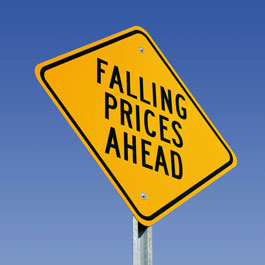
"Safe investment" concerns
I have been offered a "safe investment" in holiday property that I could buy through my SIPP. It looks attractive, paying 9.7 per cent income for the first two years. Do you think it is a good idea?
You have to question any investment able to pay such a high rate of return in the current market. The properties haven't been built yet, so the guaranteed income can only be paid by using money invested by other investors - I'd call that a Ponzi scheme.
You would be buying shares, not the physical property itself, and after two years the returns would be from dividends but this assumes the scheme is profitable. This investment is not regulated by the FSA and therefore the investor has absolutely no protection if things go wrong. It is also described as a "safe investment", which is completely disingenuous in my view, given how property markets can and do fall at times.
And it is targeted at your pension fund, your financial security in retirement. An added complication is that an illiquid investment - one that cannot be sold - could seriously limit your SIPP's flexibility and your options when you come to draw your pension. Your alarm bells shouldn't just be ringing, they should be positively booming.
Time to convert my euros back to pounds?
I spend half the year at my home in Spain and have a large amount of savings in euros there. Considering the strong Euro, should I convert these savings back to pounds?
The Euro has risen 7.5 per cent against the Pound over the last year and at times was 10 per cent higher. Relatively high interest rates, together with expectations those rates could climb higher, is one of the reasons the Euro has gained against the Pound. The Euro's strength creates a potential opportunity for those whose savings are already in the Eurozone: convert euros to a weak Sterling and benefit by gaining more bang for your buck, more pounds per euro.
However, this isn't without risk and you could lose money if the exchange rate went against you, and you should also factor in the costs of the conversions.
Could I benefit from Europe's economic woes?
Does the financial crisis in the Eurozone create opportunities for my portfolio?
Greece is bust. Ultimately a major restructuring involving a significant write-off of outstanding debt is likely. Greece will be back in the news at some stage, but weakening sentiment creates opportunities.
European taxpayers face subsidising Greek (as well as Portuguese and Irish) profligacy, but the core of the Continent is in rude health. Resurgent global growth has fuelled an export boom with a number of countries, notably Germany.
Are German carmakers or Swiss watchmakers concerned about events in Athens? Probably not. They're too busy taking advantage of an average global growth rate of four per cent and buoyant consumption in emerging markets. The appetite for BMW cars, Omega watches and Louis Vuitton bags continues unabated. So too are countless less recognisable products and services, in which European firms specialise and excel. Against this trend the travails of Greece, Ireland and Portugal look far less significant.
In my view, the best way for most private investors to invest in Europe is through a fund such as a unit trust. Here the fund manager and his team do the research and decide which stocks to buy and when to sell them making life easier for the investor. Certainly, the European fund managers we speak to are positive, believing many European companies are undervalued and that there are good opportunities.
As with any portfolio, diversify your investments and don't commit too much to one market.